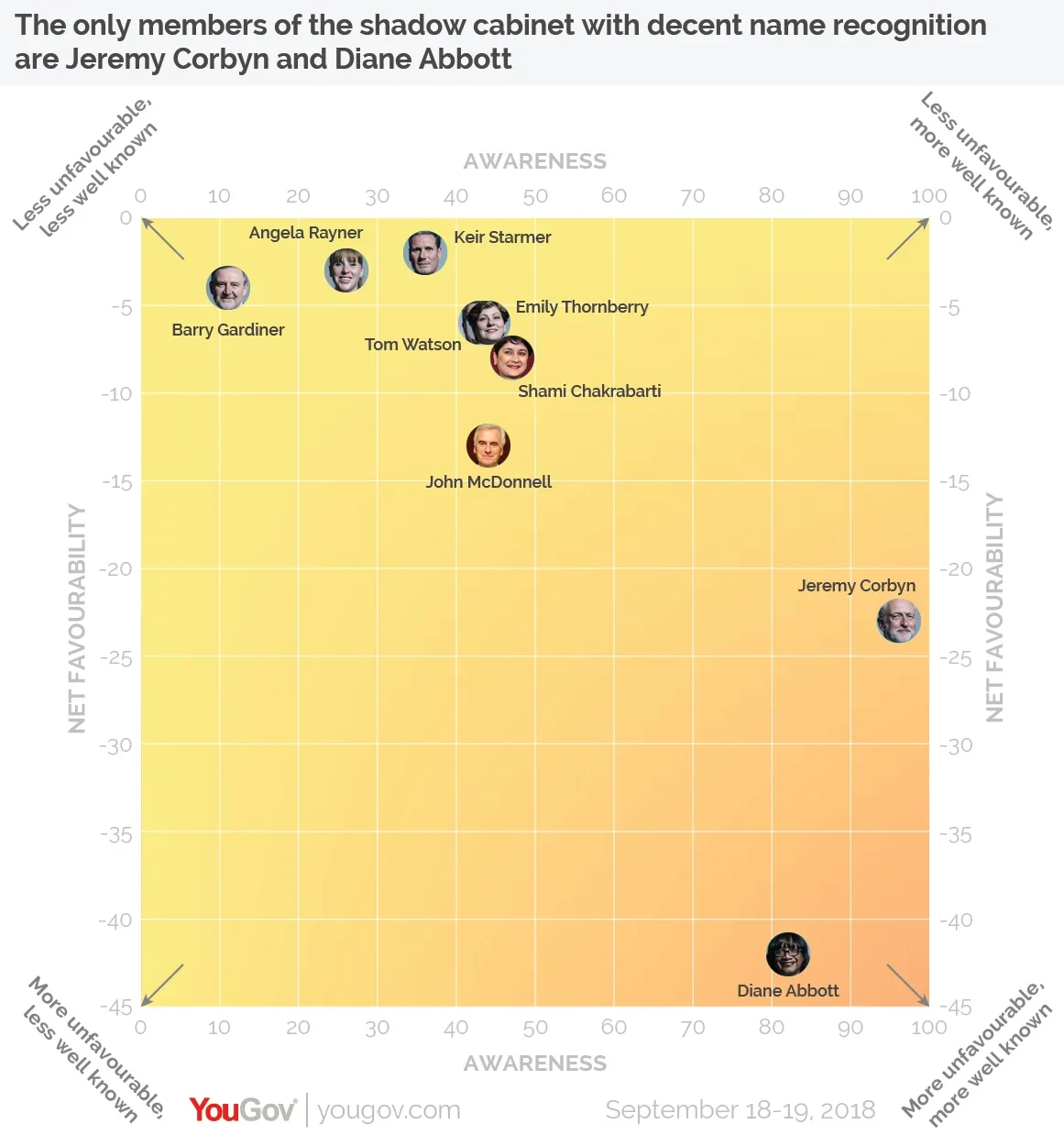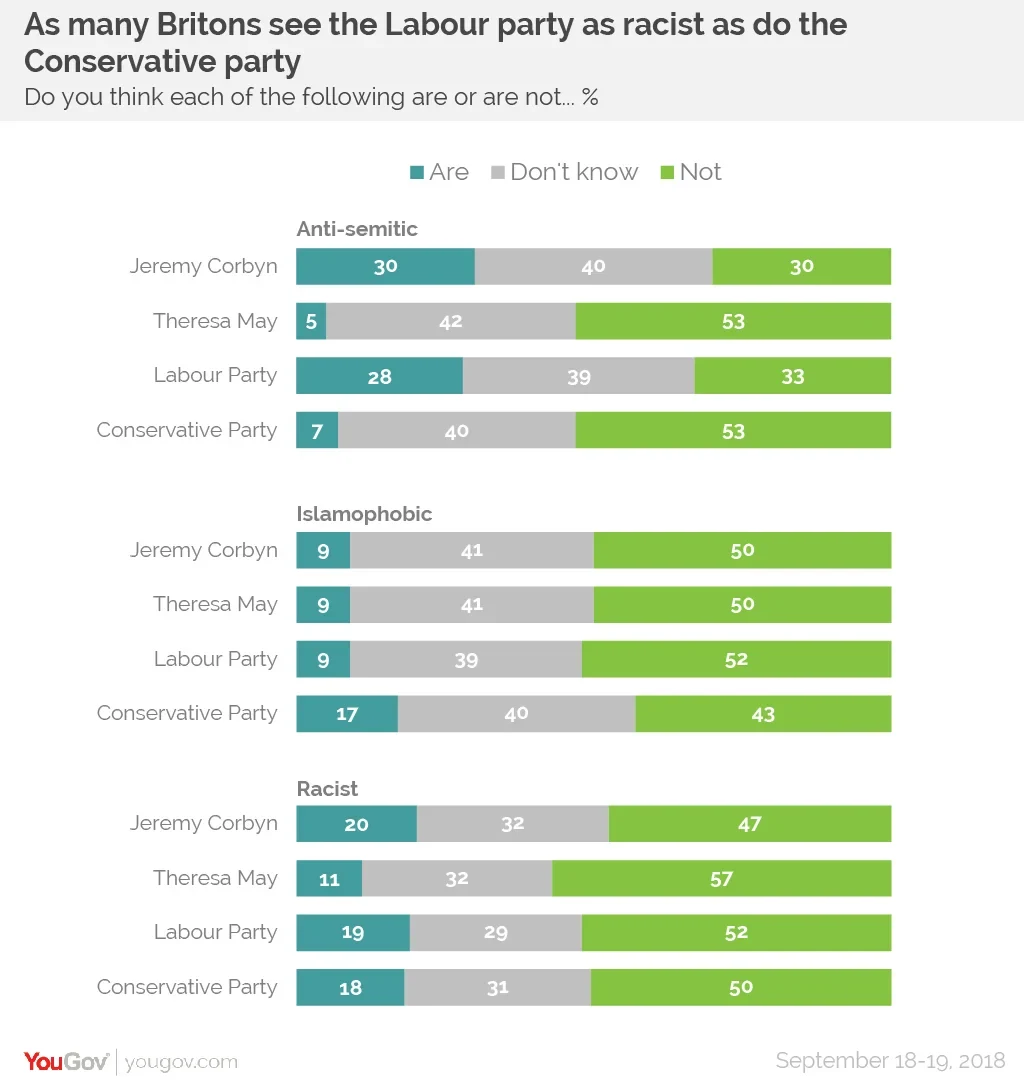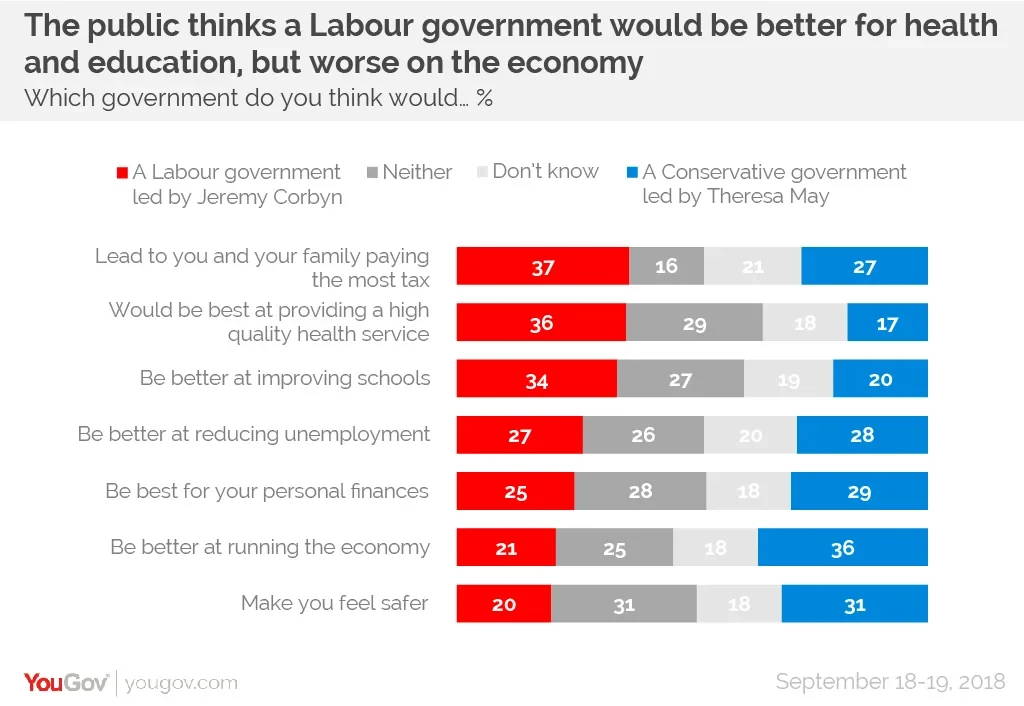Chris Curtis looks at Labour's standing in the polls
This weekend key figures from across the Labour party will be meeting in Liverpool to discuss the future of the party and begin discussing how they can win the next election, whenever it might be called.
The latest YouGov / Times poll presents the party with five key questions they should be looking to address over the coming days.
Why has Labour fallen back behind in the polls?
With the release of our latest results, showing Labour on 36% to the Conservatives’ 40%, the party has been trailing for seven consecutive YouGov polls. As a point of comparison, when the party was heading into its conference last September they had led in every single poll we had conducted since the general election.
Whilst Labour’s 2017 election campaign has shown it is possible for an opposition party to reverse their fortunes, being ahead in the polls is still preferable to being behind. The party will need to think about why it has drifted backwards over the past year, and what it can do to retake the lead.
Is the team behind Jeremy Corbyn strong enough?

Alongside Jeremy Corbyn our latest polling also looked at the awareness levels of members of the shadow cabinet, as well as analysing their popularity amongst the people who did have an opinion.
Despite only looking at the “big hitters”, seven of the eight politicians we tested had been heard of by fewer than half of the public. These include deputy leader Tom Watson (just 43% of the public have heard of him), shadow chancellor John McDonnell (44%), shadow foreign secretary Emily Thornberry (44%) and shadow Brexit secretary Keir Starmer (36%).
Despite a more prominent role in the media over the past 18 months, shadow environment secretary Barry Gardiner is still relatively unknown, with just 11% of the public having heard of him.
The single exception was Diane Abbott, who has been heard of by 82% of the public. However Abbott’s high name recognition is accompanied by high levels of unpopularity:
The majority of Brits (55%) have an unfavourable opinion of Abbott, compared to just 13% with a favourable opinion – a more than 4:1 ratio. No other member of the shadow cabinet has nearly as poor a reputation (although every one of them has a negative net favourability score).
What should the party do about accusations of anti-Semitism?

Most of the summer have been dominated by stories of anti-Semitism in the press, with the spotlight falling on the past behaviour of Labour members and Jeremy Corbyn.
It is disputable what effect stories like this have in the long term, but in the short term we now have reason to believe that this story is cutting through. Our most recent results show that there are many people who do think Labour and Jeremy Corbyn have a serious anti-Semitism problem. Three in ten Britons (30%) think that Jeremy Corbyn is anti-Semitic, and 28% think that same label applies to the Labour party.
We are not currently seeing this level of sentiment when it comes to the Conservatives and Islamophobia. Just 9% think that Theresa May or the Conservative party can generally be described as Islamophobic.
In terms of racism more generally, an issue that has been a real problem for the Conservatives in the past, the two parties are now almost level pegging, with 19% thinking the Labour party can be considered racist and 18% thinking the Conservative party can. For the leaders, 20% think Jeremy Corbyn can generally be described as racist compared to 11% who think that term applies to Theresa May.
Can the party reach out beyond its core issues, and regain trust on the economy?

Our latest polling shows that Labour is still ahead on health and education, areas in which it is traditionally strong. One in three think a Labour government led by Jeremy Corbyn would be better at improving the health service (36%) and schools (34%), compared to just 17% and 20% respectively for the Conservatives.
However, a decade after the financial crash Labour is still considerably behind the Conservatives on the economy. Whilst 36% think a Conservative government led by Theresa May would be better at running the economy, just 21% think a Corbyn-led Labour government would.
When it comes to personal finances rather than the wider economy the gap does start to close, but just a quarter (25%) say a Labour government would be better for their personal finances compared to 29% who say the same for the Conservatives.
Does any of this matter?
In previous years the Westminster bubble would have pretty much written off an opposition party which was polling behind the governing party, whose leader was significantly less popular than the Prime Minister, and who was behind the Conservatives on the economy. However to what extent do these issues matter in the current political context?
Firstly, whilst a lot of the polling is bad for the party, it still isn’t as bad as it was in early 2017 before the election was called, and the party still managed to increase either vote share by over 15% in just a few weeks. Whilst we don’t know if history will repeat itself we certainly can’t rule it out.
Secondly, it isn’t just oppositions that win elections but governments that lose them – and with the ongoing Brexit negotiations and divisions within the Conservative party there are plenty of opportunities to implode.
So although addressing some of the party’s fundamental issues is important, there is also the possibility that they could just win by default.
Photo: Getty
Full results available on Monday












